Contents
The Krasnodar Territory, being a fairly large administrative unit, has a significant variety of climatic conditions. The Kuban River divides it into two unequal parts: the northern flat part, which occupies 2/3 of the entire territory of the region and has a rather arid climate, and the southern foothill and mountain part, which receives natural precipitation by an order of magnitude more than the steppe part.
When growing tomatoes in the Krasnodar Territory, these nuances must be taken into account. If in the foothills from the sea to the south of Tuapse, a humid subtropical climate, native to tomatoes, reigns, then to the north, growing tomatoes will be difficult in a semi-dry Mediterranean climate due to lack of water. In the flat part of the region, tomato bushes often simply burn out under the hot sun with a lack of moisture in the air and soil. In general, the Krasnodar Territory is characterized by hot summers and fairly mild winters.
The soil in the steppe part of the region consists of carbonate and alkaline chernozems. These types of soil are characterized by good water permeability. Carbonate chernozem is poor in phosphorus, and leached chernozem needs the introduction of potash and nitrogen fertilizers.
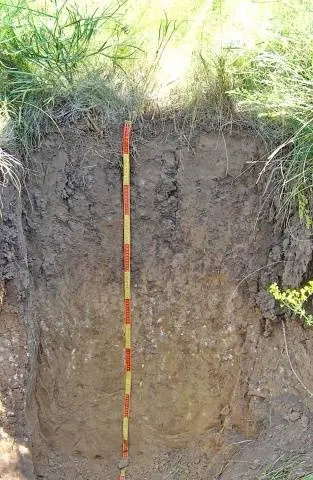
Carbonate chernozem
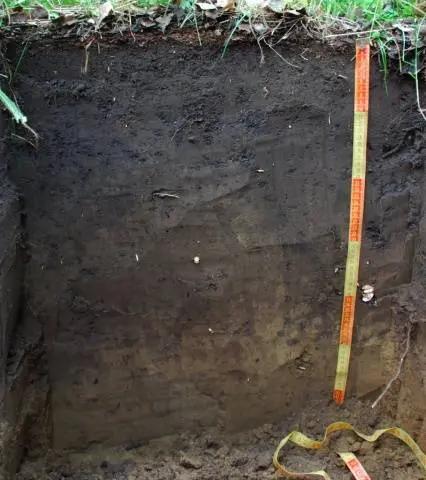
leached chernozem
Based on the high summer temperatures, you should choose varieties of tomatoes in the Krasnodar Territory. A variety grown in open ground must be adapted to these conditions, have drought resistance. The foliage of the tomato bush should be large and thick so that the fruits can hide from the sun with leaves. In such varieties, tomatoes grow as if inside a bush.
Varieties for the Krasnodar Territory
In particular, one of these varieties of tomatoes is Asvon F1 from the Kitano seed manufacturer, recommended for industrial cultivation for the purpose of further whole-fruit conservation.
Sort “Asvan F1”
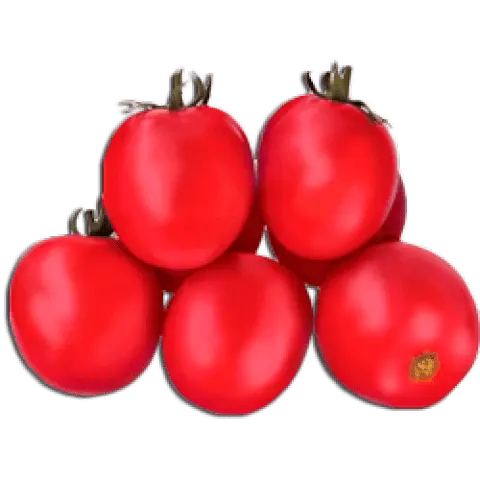
The variety began to be grown in the Krasnodar Territory at the insistence of canned vegetable producers. This tomato fully meets the needs of the industry in the field of whole-fruit preservation. Medium-sized tomatoes, whose weight does not exceed 100 g, and usually is 60-70 g, do not crack during preservation.
The pulp is dense, sweet, with a high content of saccharides. Tomatoes can be round or slightly elongated. Mostly spherical.
This early hybrid of a tomato is intended for an open ground. The variety is quite suitable for growing on a personal plot, since its purpose is universal, plus a high yield of 9 kg of tomatoes from one bush. Like most hybrids, it is disease resistant.
The bush of this variety of tomatoes is determinate, very compact. During fruiting, the bush is literally strewn with tomatoes. How it looks in reality can be seen in the video.
The only drawback of the variety is its exactingness in the nutritional value of the soil, which is not surprising with so many tomatoes.
Features of agricultural technology
You can grow this variety of tomatoes through seedlings or seedless way. The variety requires light nutrient soil. The ideal option is a mixture of humus with sand.
In the case of growing tomatoes in a seedless way, tomato seeds are sown in the ground, richly flavored with humus, sprayed with water and covered with a film. Plants with this method grow strong and hardened, not afraid of cold weather and disease.
A tomato bush during the growing season is fed at least 4 times, alternating organic matter with mineral fertilization.
The formation of bushes of this variety do not require. You can, if necessary, tie them to a support and remove the lower leaves for better ventilation.
In search of an answer to the question “what varieties of tomatoes, except early ones, are suitable for open ground”, pay attention to the varieties “Novelty of the Kuban” and “Gift of the Kuban”.
Variety “Gift of the Kuban”
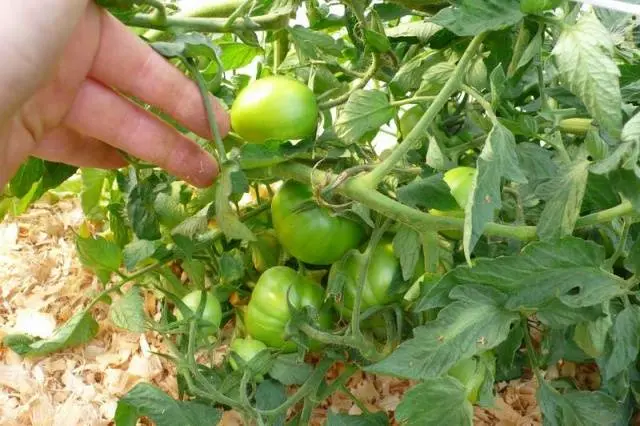
The photo clearly shows a sign of southern varieties of tomatoes: large dense foliage in which tomatoes are hiding. This tomato variety was bred for open ground in the southern regions, which include the Krasnodar Territory.
Medium tomato. It takes him 3,5 months to ripen tomatoes. Tomato bush is medium tall, up to 70 cm, determinant type. Inflorescences are simple, each cyst contains up to 4 tomatoes.
The tomato is round, slightly pointed downwards. The average weight of a tomato is 110 g. A ripe red tomato. The taste qualities of tomatoes are at their best. The yield of this variety of tomatoes in the Kuban is up to 5 kg / m².
The variety is resistant to blossom end rot and cracking. The purpose is universal.
Variety “New Kuban”
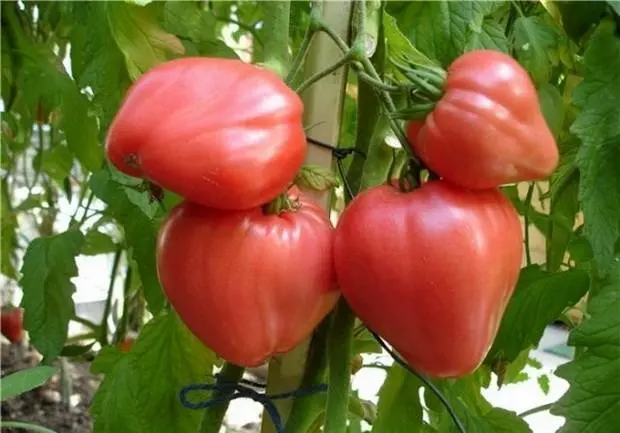
Despite the fact that the name of the variety is “Novelty of the Kuban”, the tomato was a novelty more than 35 years ago, but is still popular. Bred at the Krasnodar breeding station.
The variety is medium-late, intended for open ground in the Krasnodar Territory. The crop ripens 5 months after sowing the seeds. The bush is medium leafy ultradeterminant (20-40 cm), standard. It can be grown commercially and is suitable for mechanized harvesting. In personal subsidiary farms, it does not need frequent picking of tomatoes, it allows rare harvesting.
Tomatoes are shaped like a stylized heart. Ripe tomatoes of rich pink color. The weight of a tomato is about 100 g. The ovaries are collected in brushes, on average 3 tomatoes each. Productivity of a grade at the single mechanized harvesting of 7 kg/sq.m.
Initially, this variety of tomatoes was intended for the production of tomato products. It has a high quality fruit, rated at 4,7 points. For this reason, when grown on personal plots, the variety is used as a universal one.
If you plant all three of these varieties of tomatoes, then, replacing each other, they will bear fruit until frost.
As a salad large-fruited tomato variety, we can recommend the hybrid of the first generation tomato “Fatty F1”
Variety “Fatty F1”
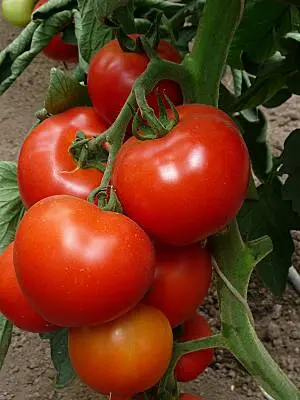
A variety, more precisely, a hybrid from the SeDeK company, intended for open ground and booths. The variety is mid-season, you will have to wait 3,5 months to harvest. Tomato bush is medium tall, up to 0,8 m tall, with limited stem growth.
Tomatoes grow weighing up to 0,3 kg, the shape is spherical. Collected in brushes of 6 tomatoes each. Ripe tomatoes of classic red color. Salad variety. The yield of the variety is average. In a booth it brings up to 8 kg of tomatoes per m², in the open air the yield is lower.
The advantages of the variety include its resistance to tomato diseases, the disadvantages are the need to form a bush and tie to a support due to the too large weight of the tomatoes.
Recommendations from Kuban gardeners
Gardeners in the Krasnodar Territory have noticed that there is no particular difference between tomatoes grown through seedlings and seedless method. Seeds sown immediately into the ground germinate later than seedlings, but then the seedlings catch up and overtake the seedlings. But such plants are not afraid of low night temperatures, they are less susceptible to diseases.
How to sow tomato seeds in the ground
In the Kuban, gardeners have adapted to sow sprouted and dry tomato seeds interspersed, insuring themselves against weather troubles. The sprouted ones will grow earlier, but in the event of a return frost, the seedlings will die. Then they will be insured by seeds sown dry. If there are no troubles, then the seedlings will need to be thinned out.
After the standard preparation of seeds for sowing: disinfection, heating, washing, some of the tomato seeds are germinated.
Seeds of different varieties of tomatoes germinate in different ways. Some need 2-3 days, and some more than a week. With this in mind, you should try to germinate tomato seeds by mid-April. Usually, by this time in the Krasnodar Territory, the earth is already warming up enough to allow early sowing of vegetables.
Remembering that usually tomatoes are planted according to the scheme 0,4×0,6 m, holes are made with sides of 40×40 cm.
After the entire area, germinated and dry seeds are evenly distributed. With this technique, seed consumption is increased, but this insures against failures. The holes are not covered. Emerging shoots grow very slowly at first.
Thinning
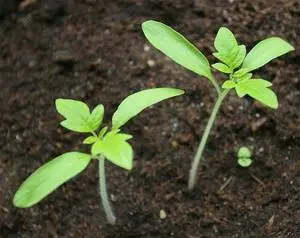
The first time Tomato seedlings are thinned out after the appearance of a pair of true leaves. You should try to leave those seedlings that are at a distance of about 7 cm from each other, naturally, in any case, removing the weak sprouts of young tomatoes.
Second time thin out, after the appearance of the 5th leaf, increasing the distance between young tomatoes to 15 cm.
For the third and last time 3 to 4 tomatoes are left in the hole at a distance of 40 cm from each other. Excess plants can be removed or transplanted elsewhere. In the second case, before the last thinning, the hole is well watered to soften the soil. Excess tomato seedlings are carefully removed along with a clod of earth and transferred to a new place.
Transplanted tomatoes are watered with root growth stimulants. All young tomato bushes after the last thinning must be mulched to avoid the appearance of a dry crust on the soil or loosen the ground after each watering.
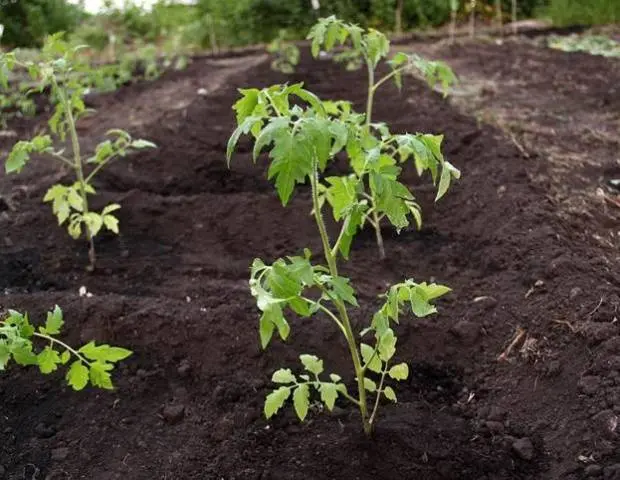
Further care for tomatoes is carried out according to the standard method.
Bushes “burn” in the sun
Tomato plants can be protected from being burned by the sun by shading with non-woven fabric. The use of a polyethylene film for these purposes is undesirable, since it does not let air and moisture out, as a result, condensate accumulates under the film, humidity rises, and the risk of phytophotorosis increases following humidity.
Non-woven covering material allows air and moisture to pass through, preventing condensation from collecting, but protecting the bushes from the burning sun. Without this protection, according to the testimony of gardeners in the region, in other years, the crop burned completely. The leaves curled up from the heat were not able to protect the fruits from the sun’s rays.
If you manage to save tomatoes growing on the fertile Kuban land from the sun and drought, they will reward you with a bountiful harvest.









